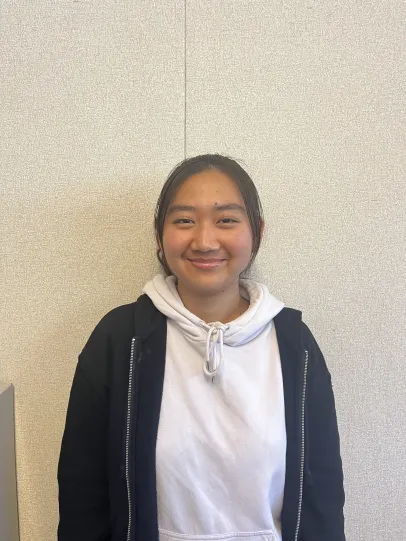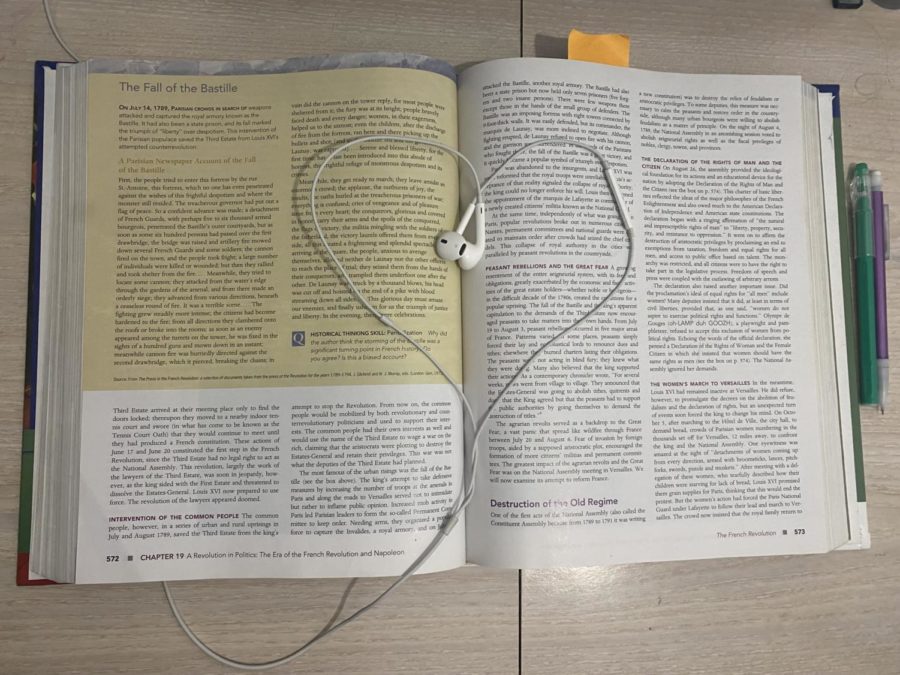5 Studying Techniques for Finals
The weeks are flying past as first semester finals are getting steadily closer. But don’t panic—here are five useful studying methods for finals.
Disclaimer: Studying is not one-size-fits-all; what works for me might not work for you. But, hopefully you will find at least one that you can use.
Flashcards
- What is it:
- Chances are you have heard of or used this method. When one uses flashcards, they write a term down on one side of a card and its definition on the other side. This is a great method for self-testing that I personally use for vocab, though there are other ways it can be used effectively.
- Tips:
- Flipping through flashcards without doing anything else is not enough; it is better to use some type of active recall in order to actually engage your brain. One good way to do this is to say the answer out loud before flipping the flashcard over to reveal the answer.
- Apps/materials needed:
- Anki – a computer app that uses spaced repetition technology.
- Quizlet – computer and mobile app (some aspects of the app are inaccessible if you are on the free version).
- Knowt.io – basically a free version of Quizlet made by students where you can import from Quizlet (also uses spaced repetition).
- Index cards – a method where students physically write information down on paper cards.
Spaced repetition
- What it is:
- This is a technique that uses the forgetting curve which shows how learned information slips out of memories over time. You review the material at systematic intervals. For example, you look back at the information one hour later, then four hours, then one day, then two days and so on.
- Tip:
- From my personal experience, it does not work well under a time crunch; it is better for units or topics taught over a long period of time, or if the class is cumulative and relies on past information.
- This works well with flashcards.
- Apps/materials needed:
- Anki: flashcards.
- Knowt.io: flashcards.
- This can also be as simple as reviewing past notes if you’re busy.
Blurting
- What it is:
- First, you look at a general topic or vocabulary terms, write down everything you know without referring to anything else other than your memory. Then, check your notes or flashcards about it in order to see what you had forgotten. Finally, make a note of what you missed and make sure you review it later.
- Tips:
- It’s best to give yourself a time limit when blurting.
- Write down the things that you had not remembered in a different ink.
- Apps/Materials Needed
- This should be done physically. From my experience and research, writing information down helps you memorize it better than typing on a computer. So, it requires a piece of paper.
- It can also be done online on a Google Doc, but it will not be as helpful.
- I usually pair this method with flashcards.
Feynman Technique
- What it is:
- This four-step technique was developed by Nobel Prize winner Richard Feynman.
- Step 1: Study a topic which is simple enough to understand.
- Step 2: Teach the material to someone, such as a friend or family member. Or, if you are socially anxious like me, you can also teach an imaginary audience.
- Step 3: After teaching, you will become aware of the gaps in your knowledge. Review these gaps.
- Step 4: Simplify the topic so that you can gain a deeper understanding. Make it so that someone who has never learned anything about that topic would still be able to understand.
- This four-step technique was developed by Nobel Prize winner Richard Feynman.
- Tips:
- Lock your room when you are trying this technique in order to remain focused and distraction-free.
- Apps/Material Needed
- You don’t actually need anything to use this method; you can do this empty-handed. However, having a white board to write stuff on could be helpful.
Self Test
- What it is:
- The title is self-explanatory: find questions that assess your knowledge of a topic and pretend like you are doing a real test when completing them.
- Tips:
- Do not make it open notes.
- Set yourself a time limit that is similar to that which would be on a test in class.
- Apps/Materials Needed:
- You can utilize your past homework questions, past quizzes if you have access to them, or find questions online about your topic. It can also be as simple as using the test feature on Quizlet.
Other Tips for Finals
- Write out the schedule for finals and which classes’ finals are on each day on a calendar.
- Classes that are in the early rounds of finals should have higher priority when studying.
- Make a ranked list of the classes that are most to least important to review for, whether the ranking is based on a low grade or you do not understand the material. Use RogerHub to help calculate the grade you need to get on a final in order to get the grade you want. Knowing what grade you must get allows you to keep in mind the effort needed. For example, if the app says you only need a 32.90% to get an A in a certain class, you shouldn’t study that hard for that class. If it says you need a 96.20% to get an A, then you should definitely intensely study for it.
- No matter how bad it gets, please do not cheat. Academic dishonesty has negative consequences, and in the end, you are also cheating yourself.
Good luck to everyone! Keep calm and don’t procrastinate no matter how good it feels in the short term.
Your donation will support the student journalists of Dublin High School. Your contribution will allow us to purchase equipment and cover our annual website hosting costs.

Ruoyi is a current junior at Dublin High School who enjoys playing one singular song on repeat until she gets absolutely sick of it. In her free...



































